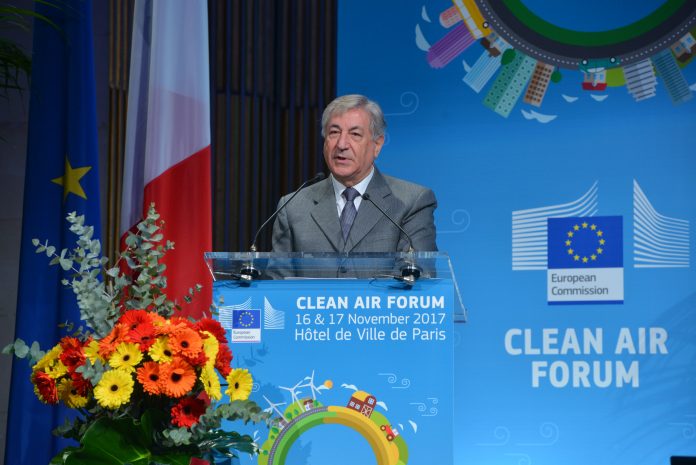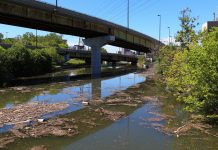Karmenu Vella, European Commissioner for Environment, Maritime Affairs and Fisheries lifts the lid on EU efforts to clean up Europe’s air quality
In Europe, the air we breathe is cleaner than it has been for decades. Air pollution is coming down and on many days, the sky looks clear.
But appearances can be deceptive because many of the dangers are invisible. Across the EU, premature deaths from air pollution are now some 15 times higher than fatalities from road traffic accidents. As I often say, you can keep off the roads, but you can’t stop breathing air.
Despite the positive trends, air pollution remains the number one environmental cause of premature death in the European Union. It still causes more than 400,000 premature deaths every year and it brings respiratory and cardiovascular diseases to millions more. The economic costs of air pollution in the EU are well over €20 billion a year.
The European Commission is committed to addressing these issues and to cleaning up Europe’s air. Our citizens deserve air that is safe to breathe and that poses no significant risks to health and the environment.
There is good progress to report. In the first 15 years of this century, we saw the combined GDP of the European Union grow by 32%, while emissions of the main air pollutants actually decreased, for example by 10% for ammonia and by 70% for sulphur dioxide (S02). But we cannot ignore the persistent and avoidable health costs from pollutants.
Last year Europe’s leaders signed new pollution limits into law. These new standards, in the National Emissions Ceiling Directive, will halve the negative health impacts of air pollution by 2030.
But laws are only useful when they are actually enforced. When a Member State fails to live up to that obligation, Europe steps in. Many air quality standards have been in place for decades and that’s why we are taking legal action to push the Member States into complying with them.
Infringements aren’t the only course of action we have at our disposal. In 2017 the Commission launched “Clean Air Dialogues” with three Member States and more are on the way.
Another tool in the box is the Environmental Implementation Review. These bilateral exchanges allow the Commission to explore options with Member State authorities and with regions and cities as well, helping them identify the places where implementation isn’t working and filling those gaps with solutions we find together.
Very often, those solutions are ready and waiting. But tackling air pollution successfully requires a concerted approach, combining various different strands. We need to bring disparate economic sectors like transport, energy, agriculture and industry together. We need to convince different levels of governance – at the European, national, regional and city level – to actively cooperate. And we need to ensure that different policy areas such as environment, climate and energy, mobility, agriculture and fiscal policy, are all pulling in the same direction. While keeping Europe’s citizens at the heart of these issues all the while.
As the UK knows very well, cities don’t just generate their own pollution: they also suffer from pollution that originates elsewhere. Air pollution, especially particulate matter, can travel long distances. As well as strengthening the case for action at the European level, this also underlines the need for a concerted approach at the domestic level.
One of the unexpected sources of particulate matter, for example, is agriculture. Livestock farming and manure spreading can release ammonia into the air, where it combines with other chemicals to form secondary particulate matter. It’s an enormous problem across the continent.
It’s a clear demonstration of the impossibility of solving problems in isolation. Tackling air pollution means tackling transport emissions, it means rethinking some of Europe’s energy system and it means involving farmers as part of the solution.
Air quality is one of the most fundamental tests of any society. If we fail this test, then ordinary people and vulnerable groups, risk paying the ultimate penalty. Just like the pollution itself, the costs are often hidden, but just like the costs, that does not make them any less real.
These problems can be avoided. Europe already has the structures and the technologies that we need. But we have to do a better job of ensuring they get used. There is too much at stake for us to fail.
Karmenu Vella
Commissioner for Environment, Maritime Affairs and Fisheries
European Commission
Tel: +32 2 299 96 96











